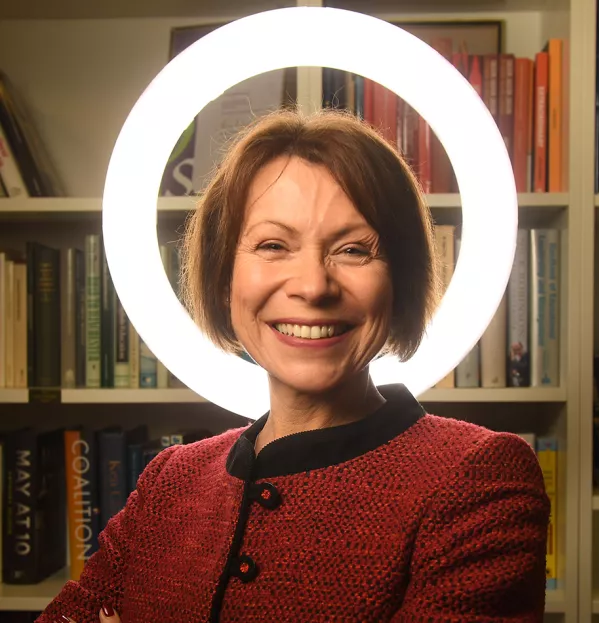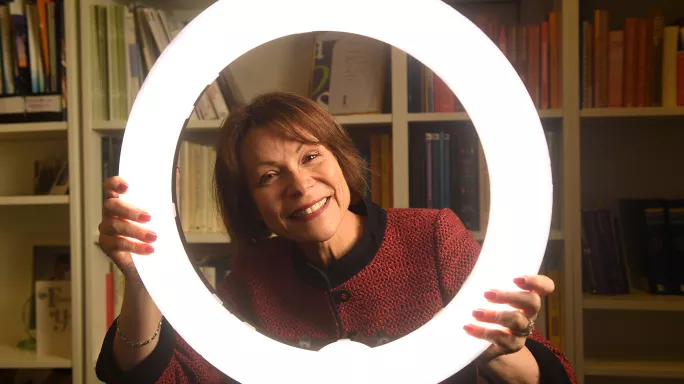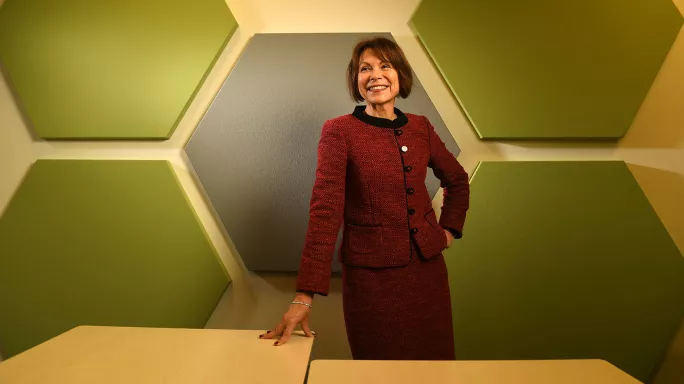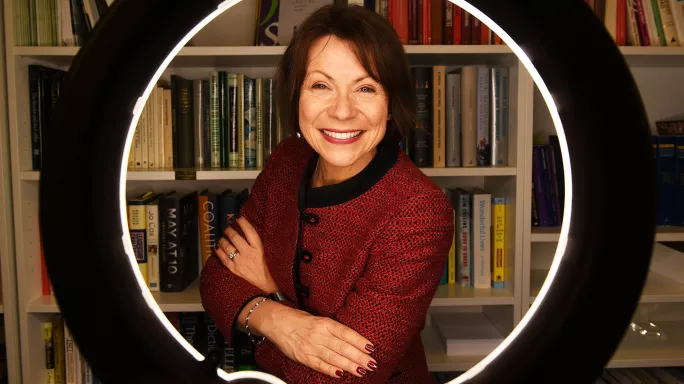10 questions with... Julie Robinson

Julie Robinson is chief executive of the Independent Schools Council, an organisation that represents more than 1,300 independent schools in the UK and overseas.
Her own education started in a comprehensive school before she went on to become the first female prep school head in Sussex, which eventually led her to her current role.
She talks to Tes about how the “enthusiasm” imbued in her as a pupil still inspires her to have an optimistic attitude about the future, why personalisation is so important in teaching and the power of private-state school partnerships.
1. Who was your most memorable teacher and why?
In my comprehensive secondary school, there was an English teacher called Dot Bardon. She had this amazing energy and was one of those teachers who could win over the lads, would pick out all the Shakespearean insults and make it fun.
When I did teacher training, I took the exact same approach. I wanted pupils to be inspired by my enthusiasm. It is amazing, when you think about it, how deep an influence people can have on you.
Ms Bardon made the English classroom experience so fun. I think that really drew me to the subject and later on to becoming an English teacher.
2. What were the best things about your time at school?
I was living in the countryside in Sussex, so for me it was the social aspect of school.
It was a big school, loads going on, lots of people. I was at a really small village primary school and then I found myself in this big comprehensive school. And I found, in both of them, but particularly in the secondary school, that meeting lots of different people was just fascinating.
3. What were the worst things about your time at school?
The worst thing about school was the careers advice - not that I have anything against it, but we had this one session, and I was advised to become a driving instructor.

And you could say, well, it’s a form of instruction, it’s teaching. But, no, I would not have been a driving instructor. How stressful is that? That’s not for me.
4. What are you proudest of in your career?
I was one of the first female heads of prep schools in Sussex and I was only 31. One of the reasons I went for the headship was the Rev John Spencer. In his retirement, he had stepped in to run Ardingly College Junior School on an interim basis, which then became several years. I was director of studies and head of English there, and he saw in me someone who was committed to the success of the school and genuinely cared about its community in the same way he did.
But the really gratifying thing was that a number of women who were teachers there went on to be heads of department and some senior leaders went on to become heads. And they said they were inspired by the fact that I could do it.
I’m really proud of that, that I was able to be a good enough cheerleader to encourage people to do that, because these women were great.
Also I’m state educated and this was an independent school. So I think these women were looking at me and thinking: “This job is up for grabs. We could do this. Why not?”
5. And what do you regret?
Now I’m doing my current job, I’m not based in a school any more. So I’m working for those schools, I’m working for the pupils, their opportunities, the staff, so that education policy will support them. But my regret is that I can’t be in there.
So, what I do is make sure that I have opportunities to visit schools - I’m a governor in two schools, a state school and independent school, and I do prize-givings so that I can get a sense of doing an assembly again.
I really miss having that community where you know each other and you can share in each other’s triumphs. There is nothing like it.
6. What is the best thing about the education system?
The best thing about education is those teachers - those committed, dedicated, vocational, inspiring teachers - they are the best thing.
Education is all about children’s opportunities, about personalisation. I always think of education as much more of a “personal individual thing” than a “whole system thing”. The good stuff about education is the one-to-one stuff, the life-transforming teaching.

The opportunities and the experiences children have that broaden them out and lead into something they do and achieve in later life. It is those things, for me, that are what I went into teaching for.
7. What is the worst part about education?
For me, the most negative aspect of the current system, and I experience this as an academy governor, is the underfunding of the state system and how that restricts opportunities to do all the things the really good teachers want to do.
State schools have fabulous teachers but can lack the resources, especially the funding to be able to comfortably provide everything pupils need. Because of that, the most wonderful, committed teaching staff have to reach into their own pockets and give additional out-of-hours time just to get their children through the weeks.
They worry about children not having enough and it causes additional stress in what is a hugely rewarding but also challenging job.
We want all teachers to be able to focus on caring for youngsters, not to be distracted by ensuring basic needs are met before education is possible. To do that, they need the tools, and the social and community support, necessary to ensure that every single pupil is properly served.
8. What would you do if you became education secretary tomorrow?
I think it’s a really tough job. If I had the chance to influence that role then what I’d want to do is gather together and build on what is already there.

I’m sure you will have heard this before, but I would aim to depoliticise education policy so that it has a sense of consistency and continuity, and is led by the schools, the teachers, the unions and the groups of people who really know about it.
I’d want an education commission to create a strategy or vision that was a decade long, that the country could get behind.
9. Who has made the biggest difference in education in the past 12 months?
Geoff Barton, for the way he campaigns and keeps children at the centre of things. Because for me, that’s the key.
Geoff understands the importance of collaboration and mutual support, and epitomises the great teacher, focusing on how best to serve the educational community. He promotes collaboration, including partnership working between different types of schools.
He reminds us of the reasons why we all came into teaching and school leadership: to support and inspire young people and to make the world a better place.
10. What are the most important lessons you have learned from doing your current job?
What I’ve learned in this job specifically, because it’s representing independent schools, is that it’s important to see beyond the assumptions about what independent schools are.
There are some people who have such a strong attachment to a stereotype. And I’ve been in these schools, so I know it’s not true, but I have to remember that they haven’t experienced the schools.
I have to be patient to understand or to recognise that, for some people, all they are given is a stereotype of what independent schooling is, and they haven’t had the direct experience I’ve had to see how warm and kind and inclusive they are, and to see the way they deal with specialisms and support children with additional needs.
On a more positive note, I’ve learned that when people do work together across all different kinds of schools, it is absolutely amazing what they can achieve.
One of the lines of work that I have seen is partnerships between state schools and independent schools.
You can share expertise, you can start taking something that’s really good from somewhere and share it more broadly, and it mutually benefits the school communities, the teachers and the pupils to have that kind of partnership working. So the opportunity that offers us for the future is really very exciting.
Julie Robinson was speaking to Cerys Turner
You need a Tes subscription to read this article
Subscribe now to read this article and get other subscriber-only content:
- Unlimited access to all Tes magazine content
- Exclusive subscriber-only stories
- Award-winning email newsletters
Already a subscriber? Log in
You need a subscription to read this article
Subscribe now to read this article and get other subscriber-only content, including:
- Unlimited access to all Tes magazine content
- Exclusive subscriber-only stories
- Award-winning email newsletters
topics in this article



